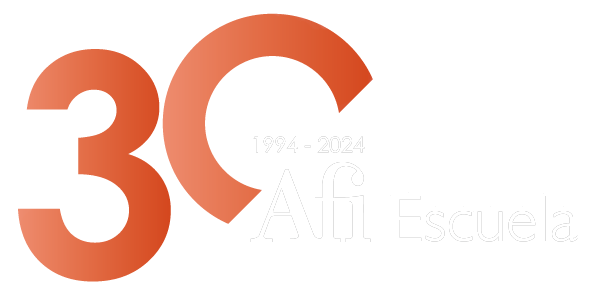CFA Certificate in ESG Investing
Curso de preparación
matrícula abierta
Del
06 de noviembre de 2024
al
21 de mayo de 2025
Finanzas, Sostenibilidad
global
FORMATO
online
IDIOMA
inglés
DURACIÓN
128 horas
En qué consiste
El Certificado en ESG Investing facilita el necesario conocimiento y habilidades para la gestión de inversiones con un enfoque global y práctico en la integración de factores ambientales, sociales y de gobernanza. El objetivo es obtener una base consolidada para:
- Analizar, valorar e integrar factores de materialidad ESG
- Construir y administrar carteras integradas de ESG
- Analizar mandatos de inversión, carteras e informes de clientes
Asimismo, la certificación permite:
- Obtener ventaja competitiva en un mercado rápido y dinámico al abordar un análisis financiero más holístico
- Priorizar las prácticas sostenibles en la toma de decisión sobre inversiones
- Ofrecer soluciones en un ámbito de gran demanda y actualidad
A quién va dirigido
La certificación CFA en ESG Investing está orientada a un amplio colectivo de profesionales que quieran analizar e integrar los factores de materialidad ESG en sus funciones diarias:
- Profesionales en roles de inversión que deseen aprender a analizar e integrar factores de materialidad ESG en su práctica diaria de análisis de inversiones
- Profesionales que busquen mejorar su comprensión de los problemas ESG en responsabilidades como:
- Ventas y distribución
- Gestión de Patrimonio
- Desarrollo de Producto
- Asesoramiento Financiero
- Consultoría
- Riesgo
¿Dónde se imparte?
Aula Virtual Afi Escuela
Información de interés
CONTENIDO
BECAS
MATRICULA
CLAUSTRO
MÓDULO 1: Introduction to ESG
By the end of this topic, learners should have:
- An understanding of the context for different approaches to responsible investment and specifically, consideration of environmental, social and governance (ESG) factors.
- An understanding of the underlying issues that constitute factors within each of the environmental, social and governance areas.
- An understanding of the broader sustainability context and global initiatives.
- An understanding of the ESG market: relevance, size, scope, key drivers and challenges, and risks and opportunities.
- An understanding of governance factors, key characteristics, main models and material impacts.
- An understanding of environmental factors, systemic relationships, material impacts, megatrends and approaches to environmental analysis at country, sector and company levels.
- An understanding of social factors, systemic relationships, material impacts and approaches to social analysis at country, sector and company levels.
- An understanding of ESG analysis, valuation and integration.
- An ability to analyse how ESG factors may affect industry and company performance, and security valuation across a range of asset classes.
- An ability to apply a range of approaches to ESG analysis and integration across a range of asset classes.
- An understanding of engagement and stewardship.
- An understanding of ESG integrated portfolio construction and management.
- An ability to apply ESG screens to the main asset classes and their sub-sectors.
- An understanding of investment mandates, portfolio analytics and client reporting.
El precio de la matrícula del curso preparatorio para la CFA Certificate in ESG Investing es de 1.250 €.
Claudia Antuña.
Socia, AFI Inversiones Globales SGIIC.
Frenando Ibañez
Socio Fundador y Director General, Ética.
Senén Ferreiro
Socio Fundador y CEO, VALORA Consultores.
Carlos Magán Socio
AFI Inversiones Globales SGIIC
MÓDULO 1: Introduction to ESG
By the end of this topic, learners should have:
- An understanding of the context for different approaches to responsible investment and specifically, consideration of environmental, social and governance (ESG) factors.
- An understanding of the underlying issues that constitute factors within each of the environmental, social and governance areas.
- An understanding of the broader sustainability context and global initiatives.
- An understanding of the ESG market: relevance, size, scope, key drivers and challenges, and risks and opportunities.
- An understanding of governance factors, key characteristics, main models and material impacts.
- An understanding of environmental factors, systemic relationships, material impacts, megatrends and approaches to environmental analysis at country, sector and company levels.
- An understanding of social factors, systemic relationships, material impacts and approaches to social analysis at country, sector and company levels.
- An understanding of ESG analysis, valuation and integration.
- An ability to analyse how ESG factors may affect industry and company performance, and security valuation across a range of asset classes.
- An ability to apply a range of approaches to ESG analysis and integration across a range of asset classes.
- An understanding of engagement and stewardship.
- An understanding of ESG integrated portfolio construction and management.
- An ability to apply ESG screens to the main asset classes and their sub-sectors.
- An understanding of investment mandates, portfolio analytics and client reporting.
9539, 9908, 9784, 9536
El precio de la matrícula del curso preparatorio para la CFA Certificate in ESG Investing es de 1.250 €.
Más Información
Partner, Afi Inversiones Globales, SGIIC

Claudia Antuña
Consultora Senior de Afi Inversiones Globales SGIICPartner, Afi Inversiones Globales, SGIIC

Claudia Antuña
Consultora Senior de Afi Inversiones Globales SGIIC